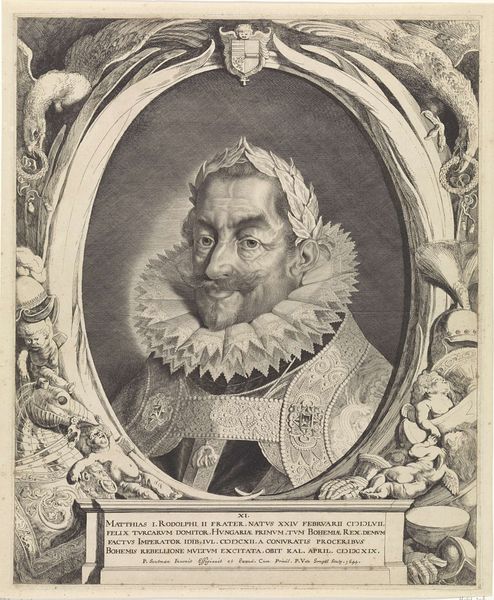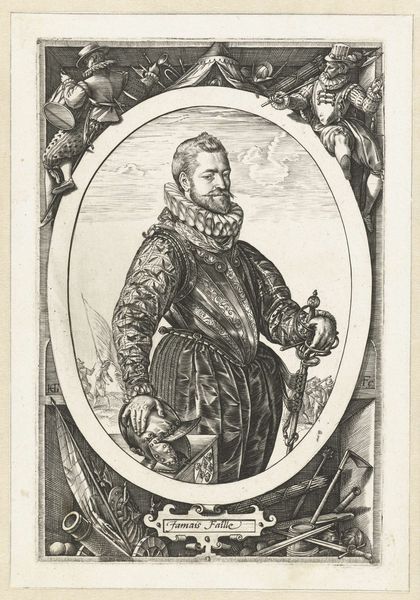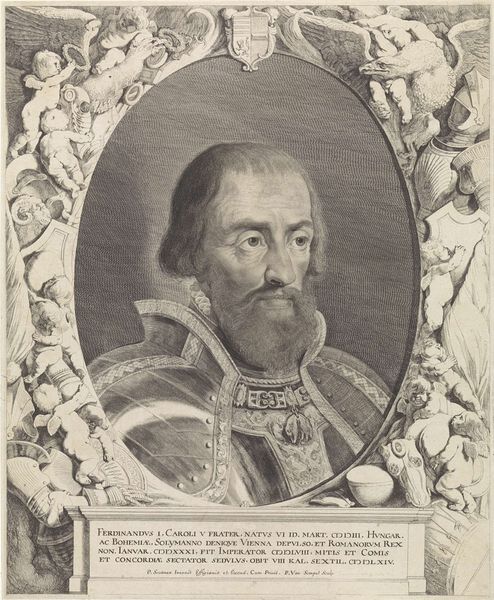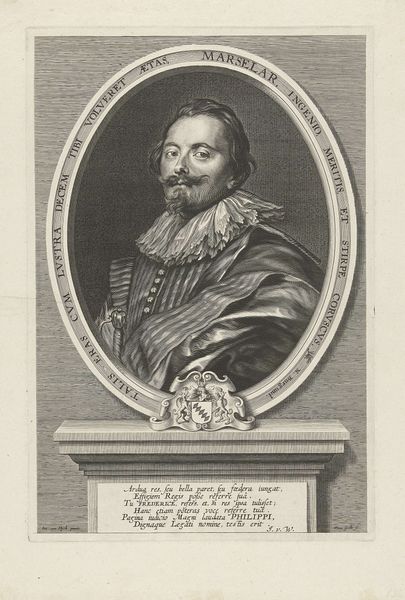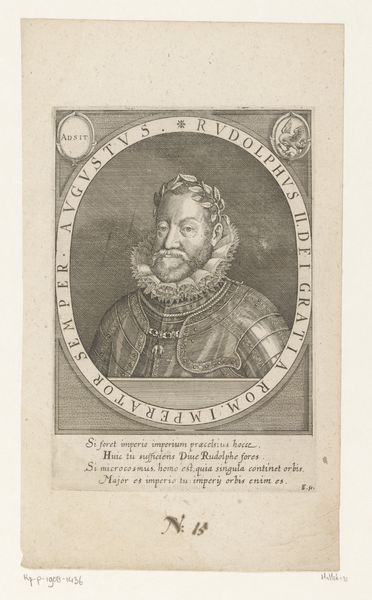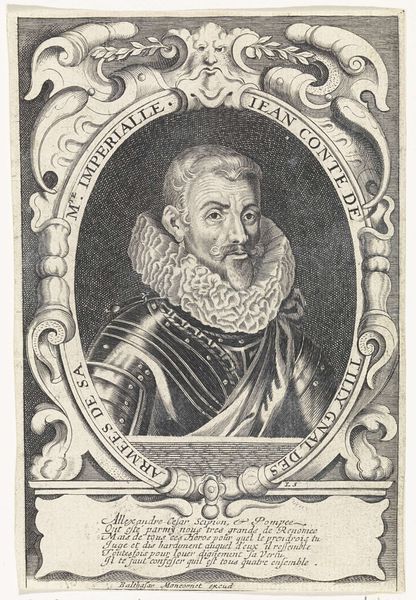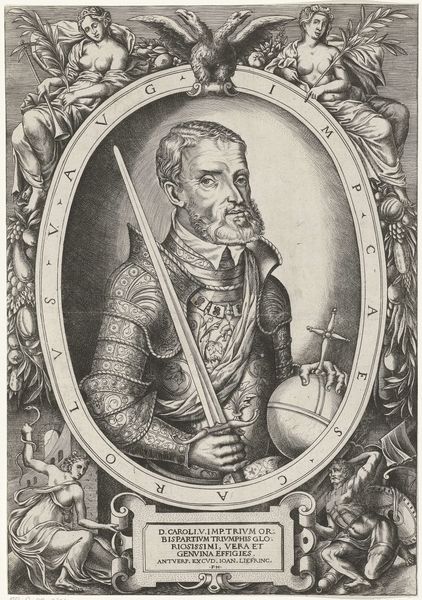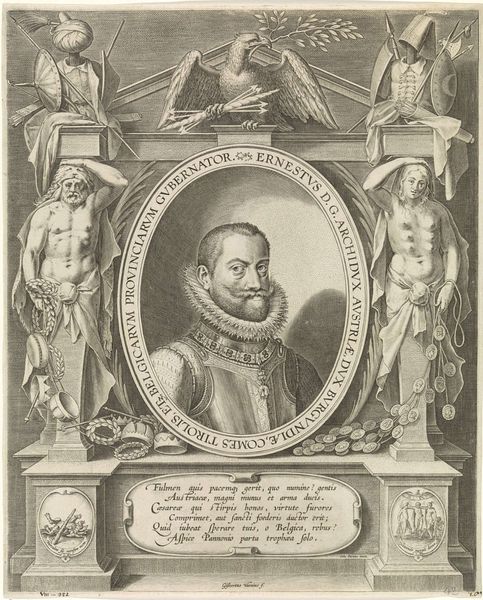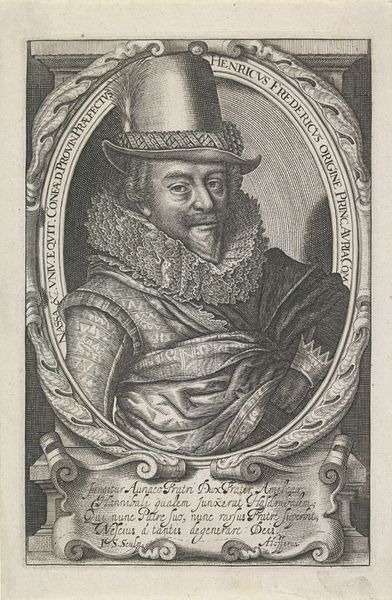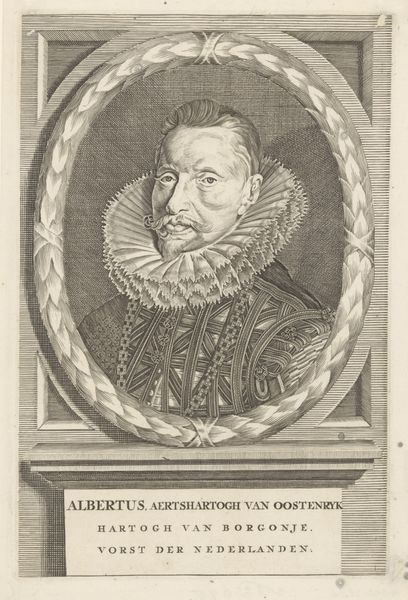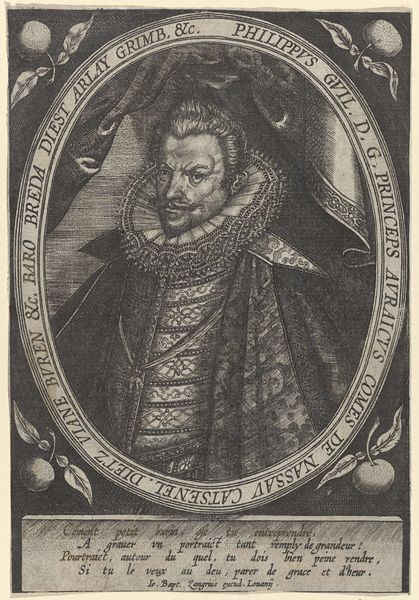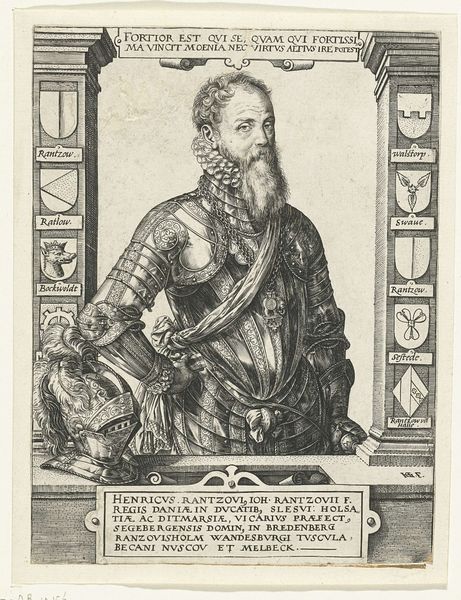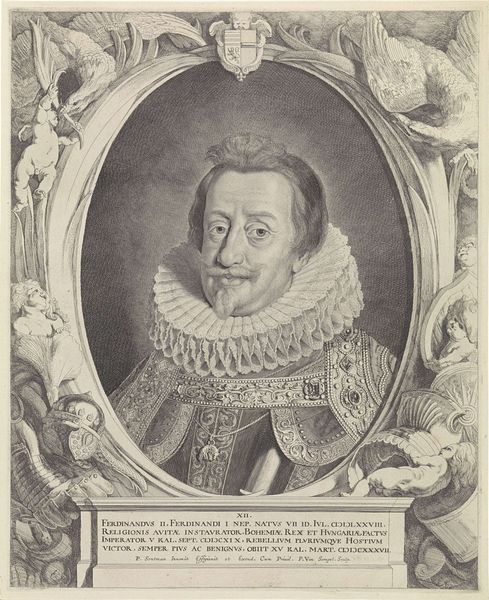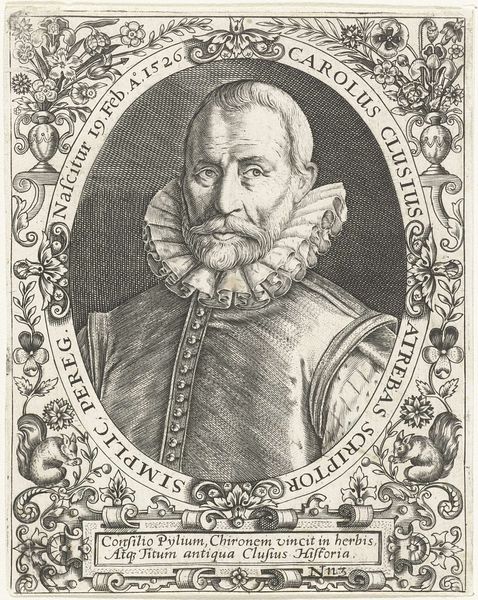
print, engraving
#
portrait
#
baroque
# print
#
portrait drawing
#
history-painting
#
engraving
Dimensions: height 442 mm, width 360 mm
Copyright: Rijks Museum: Open Domain
This is Pieter van Sompel’s engraving of Rudolf II, the Holy Roman Emperor, made around 1642. At first glance, your eye is drawn to the figure's face, centrally framed by an oval border teeming with cherubic forms and symbolic armor. The overall tonal range is narrow, dominated by shades of grey, achieved through meticulous hatching and cross-hatching. Looking closer, the composition reveals a play between organic and geometric forms: the Emperor's laurel wreath contrasts with the rigid lines of his armor, each element contributing to the symbolic representation of power and authority. Van Sompel uses a semiotic system, employing recognisable visual codes to convey Rudolf II's status. The cherubs and armor are not merely decorative, but function as signs within a visual language of power. Consider how the artist balances intricate detail with overall legibility. Such formal choices serve not just aesthetic purposes, but engage with broader cultural and philosophical discourses about representation and power. The portrait invites us to reconsider how we interpret these signs.
Comments
No comments
Be the first to comment and join the conversation on the ultimate creative platform.
